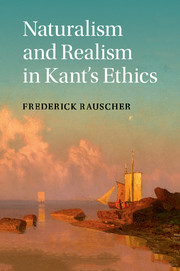Book contents
- Naturalism and Realism in Kant’s Ethics
- Naturalism and Realism in Kant’s Ethics
- Copyright page
- Contents
- Book part
- Citations of Kant’s writings
- Introduction
- Part I Laying the ground
- Part II Practical reason in nature
- Part III Morality beyond nature?
- 5 “God” without God: the status of the postulates
- 6 From many to one to none: non-natural free choice
- 7 Value and the inexplicability of the practical
- Postscript: Kant’s naturalist moral idealism
- Works cited
- Index
5 - “God” without God: the status of the postulates
from Part III - Morality beyond nature?
Published online by Cambridge University Press: 05 December 2015
- Naturalism and Realism in Kant’s Ethics
- Naturalism and Realism in Kant’s Ethics
- Copyright page
- Contents
- Book part
- Citations of Kant’s writings
- Introduction
- Part I Laying the ground
- Part II Practical reason in nature
- Part III Morality beyond nature?
- 5 “God” without God: the status of the postulates
- 6 From many to one to none: non-natural free choice
- 7 Value and the inexplicability of the practical
- Postscript: Kant’s naturalist moral idealism
- Works cited
- Index
Summary
- Type
- Chapter
- Information
- Naturalism and Realism in Kant's Ethics , pp. 149 - 179Publisher: Cambridge University PressPrint publication year: 2015

